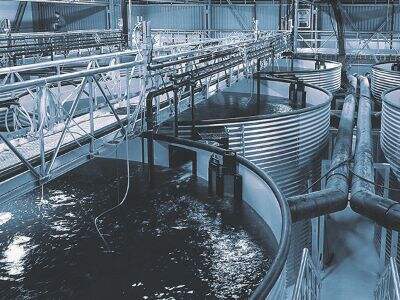Aquaculture is a unique method of raising fish and other aquatic creatures in regulated environments such as tanks or ponds. This is how we get healthy food while ensuring we are not breaking the Earth. Aquaculture is a fantastic way to feed the world, but aquaculture facilities can be expensive to launch. It can be pricey so many are looking for more affordable, and smart, ways to run these farms. At Wolize, we are trying out low-cost ideas which we can give to farmers to grow more fish and earn more.
Easy Ways to Help Farmers
Probably the most significant way that we can help farmers is by the use of simple machines that make their life easier. For instance, fish farmers can install machines known as aerators. These machines add oxygen to the water, improving the fish's respiration and health. This is super important because without oxygen, fish cannot grow and live. Aerators themselves aren't expensive and can help fish thrive at a faster pace than they would without them.
Instead, you can consider using solar-powered pumps to move water. These pumps are powered by the sun and therefore do not rely on electricity from the grid. Combined, this saves money and keeps the water clean and fresh. This allows farmers to take care of their fish without the concern of tremendous energy bills.
Aquaculture Made Easy for Everyone
One of the biggest challenges with aquaculture is that not everyone is able to just get up and build a farm, as it can be difficult to find the appropriate equipment or know-how in order to do so. That’s why we are developing technology that is intuitive and simple to understand. We also developed a mobile app for farmers to monitor their fish and growth. This app is developed in a user-friendly way so even the tech noob persons can perform using it easily. And most importantly, it’s free to download on any smartphone, so it’s accessible to many farmers.
Not spending more than you save when fish farming
Fish farming can be costly, but many ingenious ways to economize while maintaining quality do exist. Farmers can, for instance, build their tanks or ponds using recycled materials. This saves money on construction materials and is also better for the environment, as it reduces waste. Old materials can be used for aquaculture instead of discarding them.
Moreover, fishermen may also feed their fishes with natural food. They can plant things like algae or other aquatic plants to nourish their fish. Not only is this a smart way to save money, but it is also a sustainable choice. By growing their own fish food, farmers can ensure their fish are healthy and happy, without the need to purchase expensive store-bought food.
Keeping Fish Healthy
As any living animal can get sick, fish have no exception to these rules, which can make aquaculture challenging. Therefore, we are constantly seeking new methods to improve fish health and ensure proper growth. We created a unique vaccine that helps fish fighting the most widespread conditions which may endanger their health. And because this vaccine is inexpensive and simple, more farmers can use it to protect their fish.
We are also studying the little bacteria that live in and around where fish live (the microbiome). “This work aims to further understand how these bacteria can impact a bait fish health, which can be used to develop novel prophylactic measures to care for and maintain fish health.” This is important research because better-growing fish ultimately means more food for humans.
Low-Cost Concepts for Aquaculture
At Wolize believe that healthy food should be accessible to all, and that food should do good to the environment. That’s why we’ve committed ourselves to discovering all kinds of innovative, low-cost ideas for aquaculture. Exciting stuff we are working on:
Smart feeds: These specialized feeds can modify both the quantity and type of feed that fish receive based on their needs over time. This reduces waste and prevents overfeeding as the fish will only consume what is necessary to stay healthy, grow, and stay fit.
LED lights: Farmers can use LED lights to regulate the light input for fish production since it is energy efficient. This helps with regulating fish growth and can also help limit stress on fish and allow for happier, healthier specimens.
Water filters: Natural filters, such as plants or friendly bacteria, help filter dirt out of the water, making sure the water stays clean and healthy for your fish. That's a good way to make sure that the fish are living in a safe environment which is essential for their health.
All in all, this is creating a great deal of healthy food for all. It is possible for it to also be affordable and accessible to all people with the right ideas and innovations.












































